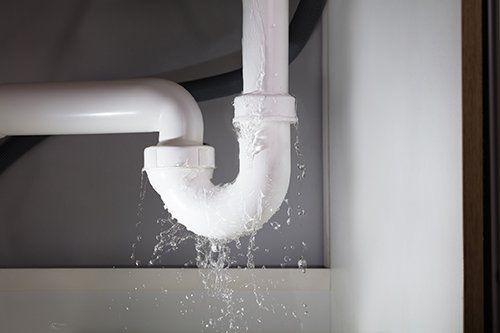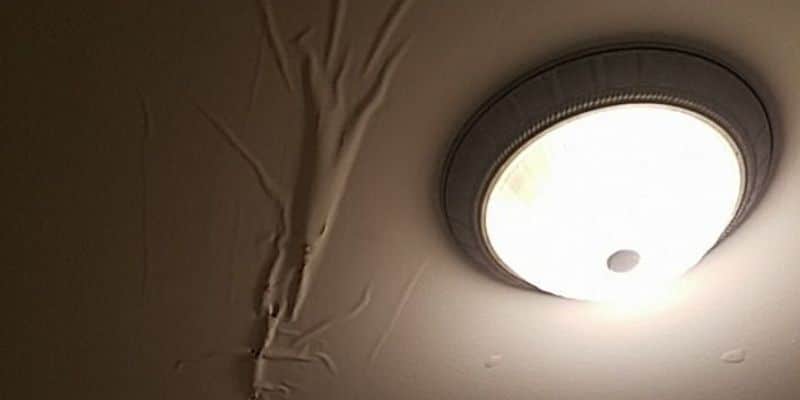Discover the Six Most Common Causes of Water Leaks and How to Resolve Them
Discover the Six Most Common Causes of Water Leaks and How to Resolve Them
Blog Article
They are making a few good observations on How Fast Water Damage Can Ruin Your Home as a whole in the article in the next paragraphs.

Leaks not only trigger waste of water however can likewise trigger unnecessary damage to your house and also promote undesirable organic growth. However, water leakages may go unnoticed because most of the pipework in our home is hidden. By looking and also comprehending for daily situations that cause leakages, you can secure your house from future leakages as well as unnecessary damage. Today, we will take a look at six leakage causes that might be creating your pipelines to leak.
Elbowing in roots
Most water leaks begin outside your home instead of inside it. If you discover an abrupt decrease in water stress, say in your faucet, take time to head out as well as examine your lawn. You might observe wet spots or sinkholes in your lawn, which might indicate that tree roots are getting into water lines causing water to permeate out. You can have your plumber look for breach, particularly if you have trees or shrubs near your residential property.
Rusty water systems
As time passes by, your plumbing system ages and corrosion such as rust may start gnawing the pipes. This might be the root cause of discoloration or bending on your pipes. This calls for an examination with your plumber right away. If our plumbing system is old, consider replacing the pipes considering that they go to a greater risk of rust than the more recent models.
Malfunctioning Pipe Joints
The point at which your pipelines attach is often the weakest web link in the waterline. Pipeline joints can degrade over time, leading to water leakages. Unfortunately, the majority of pipeline joints are not quickly visible. If you have noisy pipelines that make ticking or banging sounds, particularly when the warm water is activated, your pipeline joints are possibly under a great deal of pressure. It is a good idea to have your plumber examine your system yearly.
Instant temperature level changes.
Extreme temperature adjustments in our pipes can cause them to increase and also acquire unexpectedly. This development as well as contraction may create splits in the pipes, especially if the temperature level are below freezing.
Poor Water Connectors
Sometimes, a leak can be caused by loosened hoses and also pipes that provide your home appliances. Generally, shifting is what creates the loose water Links. You might locate in the case of a washing equipment, a hose pipe may spring a leakage due to trembling during the spin cycle. In case of a water links leak, you might discover water running straight from the supply line or puddles around your home appliances.
Clogged Drains
Blocked drains pipes may be frustrating as well as inconveniencing, yet they can sometimes end up creating an overflow leading to rupture pipelines. Maintain removing any kind of materials that may decrease your drains pipes that can clog them to prevent such aggravations.
All the above are sources of leakages but not all water leaks arise from plumbing leakages; some leakages could come from roof covering leaks. All leaks ought to be fixed quickly to avoid water damage.
Leaks not only trigger waste of water however can additionally create unnecessary damage to your house and promote unwanted organic growth. By looking and understanding for daily scenarios that create leakages, you can shield your residence from future leakages and also unnecessary damage. Today, we will look at six leak triggers that might be triggering your pipelines to drip.
At times, a leak can be caused by loose hose pipes as well as pipes that supply your home appliances. In case of a water links leakage, you might see water running directly from the supply line or pools around your devices.
How To Check For Water Leak In Your Home
How To Check for Leaks
The average household's leaks can account for nearly 10,000 gallons of water wasted every year and ten percent of homes have leaks that waste 90 gallons or more per day. Common types of leaks found in the home are worn toilet flappers, dripping faucets, and other leaking valves. These types of leaks are often easy to fix, requiring only a few tools and hardware that can pay for themselves in water savings. Fixing easily corrected household water leaks can save homeowners about 10 percent on their water bills.
To check for leaks in your home, you first need to determine whether you're wasting water and then identify the source of the leak. Here are some tips for finding leaks:
Take a look at your water usage during a colder month, such as January or February. If a family of four exceeds 12,000 gallons per month, there are serious leaks.
Check your water meter before and after a two-hour period when no water is being used. If the meter changes at all, you probably have a leak.
Identify toilet leaks by placing a drop of food coloring in the toilet tank. If any color shows up in the bowl after 10 minutes, you have a leak. (Be sure to flush immediately after the experiment to avoid staining the tank.)
Examine faucet gaskets and pipe fittings for any water on the outside of the pipe to check for surface leaks.
Undetected water leaks can happen without the home or business owner even realizing. If you suspect a water leak, but not able to find the source. It is time to contact a professional water leak detection service, The Leak Doctor.
How To Find a Water Leak In Your Home
https://www.leakdoctor.com/blog/How-To-Check-For-Water-Leak-In-Your-Home_AE197.html

I hope you enjoyed reading our part on How to Find Water Leaks. Thanks a lot for taking the time to read our blog. Kindly take the opportunity to share this entry if you appreciated it. I appreciate reading our article about How Fast Water Damage Can Ruin Your Home.
Visit The Following Page Report this page